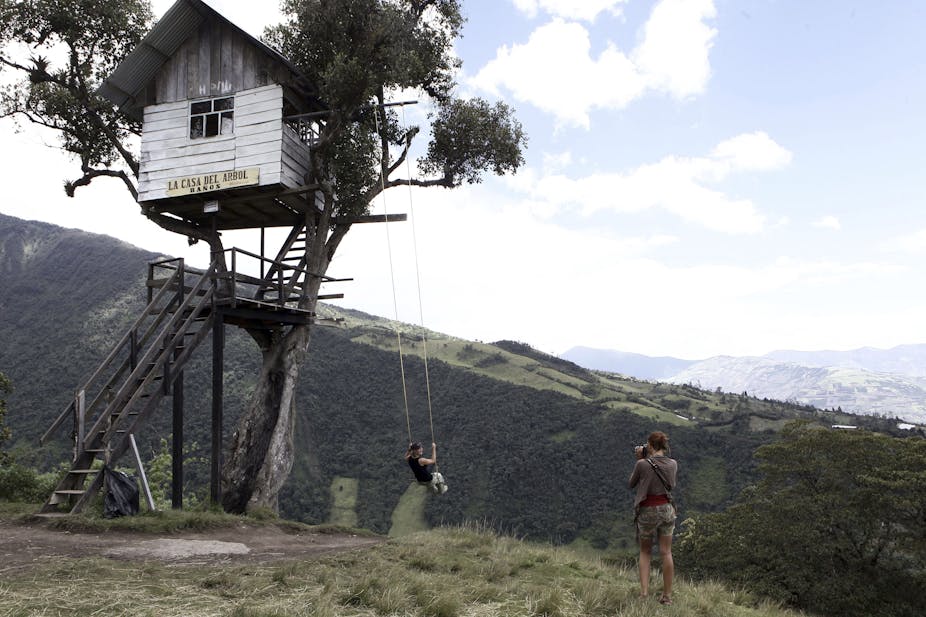It’s increasingly clear that there is something fundamentally wrong with the way humans run the world. There are many contradictions experienced daily that prove this: the widening social gaps between rich and poor, the paradox of obesity next to starvation, and the ongoing destruction of the planet for short-term private profit.
Most of us have become willing prisoners of the prosperous economy that we had hoped to build. Meanwhile we are largely unaware that this apparent growth came at a huge cost to the environment and labour. This economy was structured to benefit elites rather than trickle down to the middle class and the poor.
As Nobel laureate Joseph Stiglitz makes clear, the current economic paradigm of a “rising tide” of prosperity and growth undermines the well-being of billions of people. It also endangers societal stability and the survival of other species. The time has come to ditch the current economic paradigm, for one in which people and the planet actually matter.
We chart here an integrated economy based on the principles of the restoration, rather than the exploitation, of natural and human resources.
Time for change
Evidence shows that the protection and promotion of natural ecosystems is not just a moral obligation. It is also essential economic and social policy.
Natural capital is often defined as the world’s stocks of natural assets, like all living things, including geology, soil, air, and water. From this capital, people derive a wide range of services, often called ecosystem services. This makes human life and economic activity on earth possible.
In developing countries, abundant natural capital is the most significant generator of prosperity. This is followed by human capital. This is according to an approach assessing the different types of wealth around the world.
Produced capital is the only component of economic growth captured by the gross domestic product. Several of the world’s developing economies are shifting, after realising the importance of ecosystems to their national development.
Some of these shifts are seen in Bolivia, Bhutan, Costa Rica, Ecuador and Namibia, with long-term benefits for sustainable economic growth. Most of these countries have included the protection of biodiversity and ecosystems in their constitutions. As a result there have been more sustained economic growth trajectories. This includes annual multi-million dollar revenues for the national coffers from ecotourism for Costa Rica, Ecuador and Namibia. Some have even established clear thresholds for measuring sustainability and human well-being that cannot be surpassed.
Ten African countries, from South Africa to Gabon, signed the Gaborone Declaration in 2012 and the Cairo Declaration in 2015. These commit nations to protecting natural capital and integrating it into economic planning. The UN also supports the work of a group of lawyers calling for a global law giving rights to other species living on the planet.
A global call has been made for the establishment of a public trust to manage the atmosphere, the most precious resource.
The way human activities generate productive value is being reconsidered in the new economy. This is a crucial step in addressing the social and environmental impacts of a ruinous economic system. Humans have spent the last 150 years exploiting natural resources and labour to the point of collapse and civil unrest. But the time has come to build a new economy based on the restoration of both natural and social capital.
Economically and ecologically, investment in land, wetland and marine rehabilitation has powerful benefits. It can enable adaptation to climate change. It also increases opportunities for businesses and communities to solve problems cooperatively or with responsible competitiveness. It helps build ecological and social resilience.
South Africa boasts important pockets of innovation in these fields. The expanded public works initiatives to restore ecological functionality and biodiversity to catchments, wetlands, and fire-prone ecosystems are particular examples. South Africa is learning, through these and other initiatives, that investment in ecological infrastructure as a development and climate resilience strategy is crucial.
The country also hosts a high density and diversity of green economic and technological initiatives. These provide fertile ground for experimentation into sustainable and prosperous futures. Yet, South Africa’s economy remains overall highly extractive. It depends on obsolete infrastructure and fossil fuels like coal. This must change fast, and learning from existing innovations can help fast-forward the transition.
At a global conference in November in South Africa, speakers highlighted a range of important and potentially game-changing initiatives by countries investing in ecosystem services and infrastructure.
The conference addressed the following questions:
What is the economic potential of investing in ecological infrastructure and the restoration of ecosystem services and biodiversity, in different parts of the world?
What are the avoided costs of disaster relief, through ecological restoration?
How much do these activities simultaneously build social resilience and adaptation to change?
The values on which the current economy is based undermine ecosystem health and human well-being. Instead, the country should realign an economy around the wellbeing of society and the environment, partly through changing the way in which it is measured.
Traditional practices of measuring capital flow do not reflect the very important degradation of natural assets, or of labour. In the early 1970s, while the outside world ignored the Club of Rome and the global environmental movement, the King of Bhutan led the way with a fundamentally different parallel system to GDP. He called it gross national happiness. The Happy Planet Index inspired by Nic Marks is another.
The recently adopted Sustainable Development Goals demand that the global development policy discourse is changed to one of human well-being, linked to ecosystem health. It must build on shaping a new economy, one in which people and the planet truly matter.

